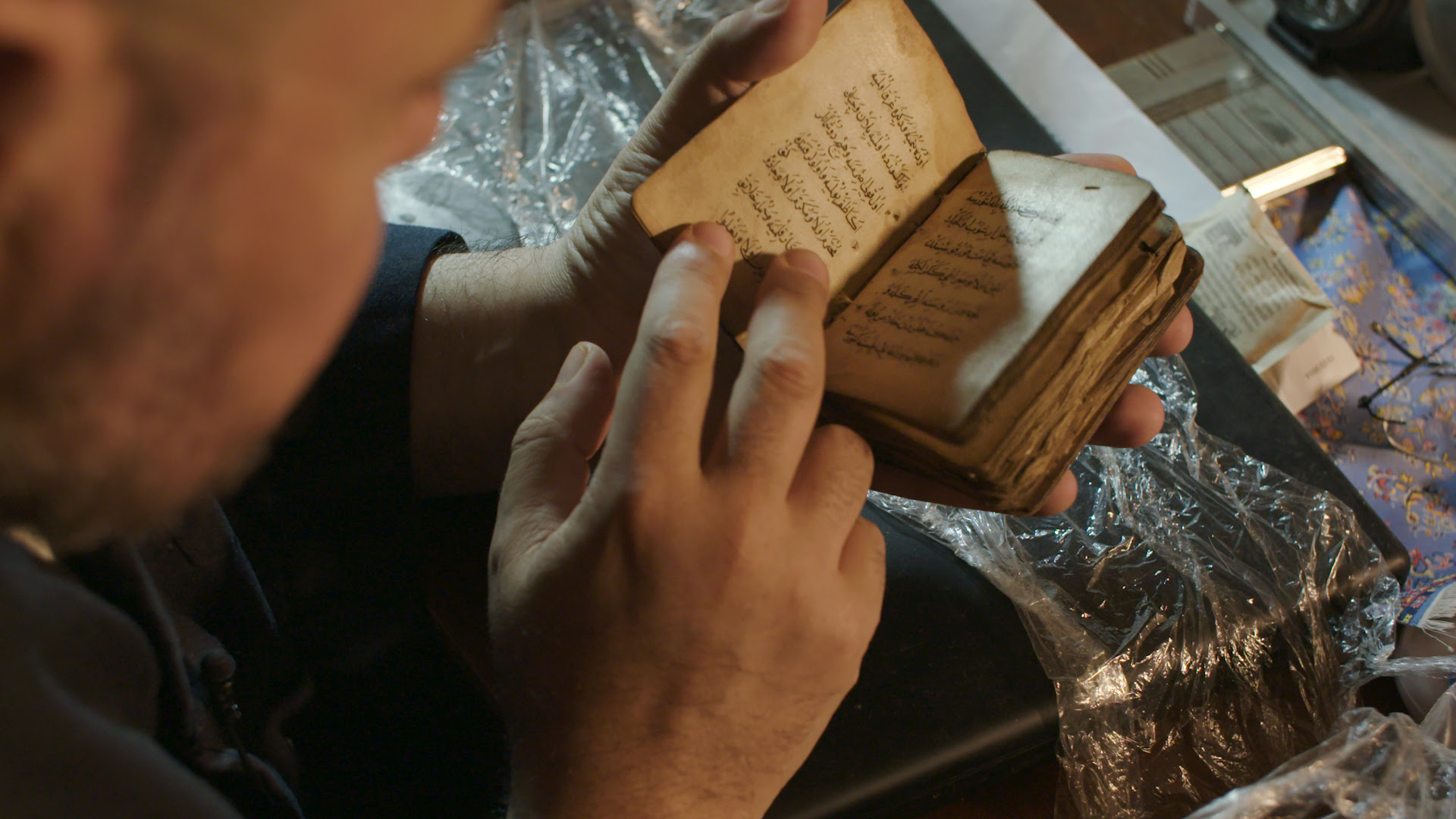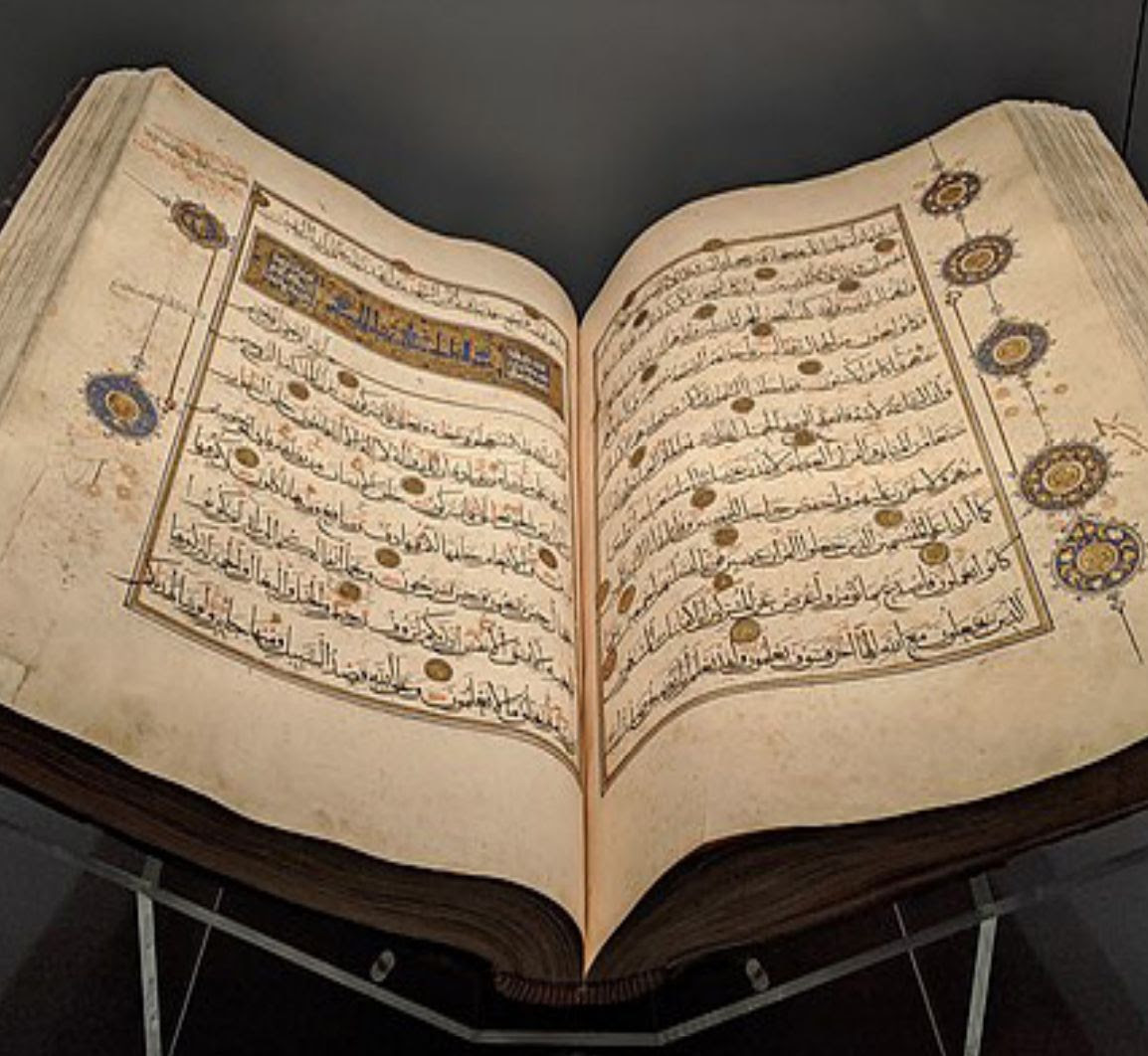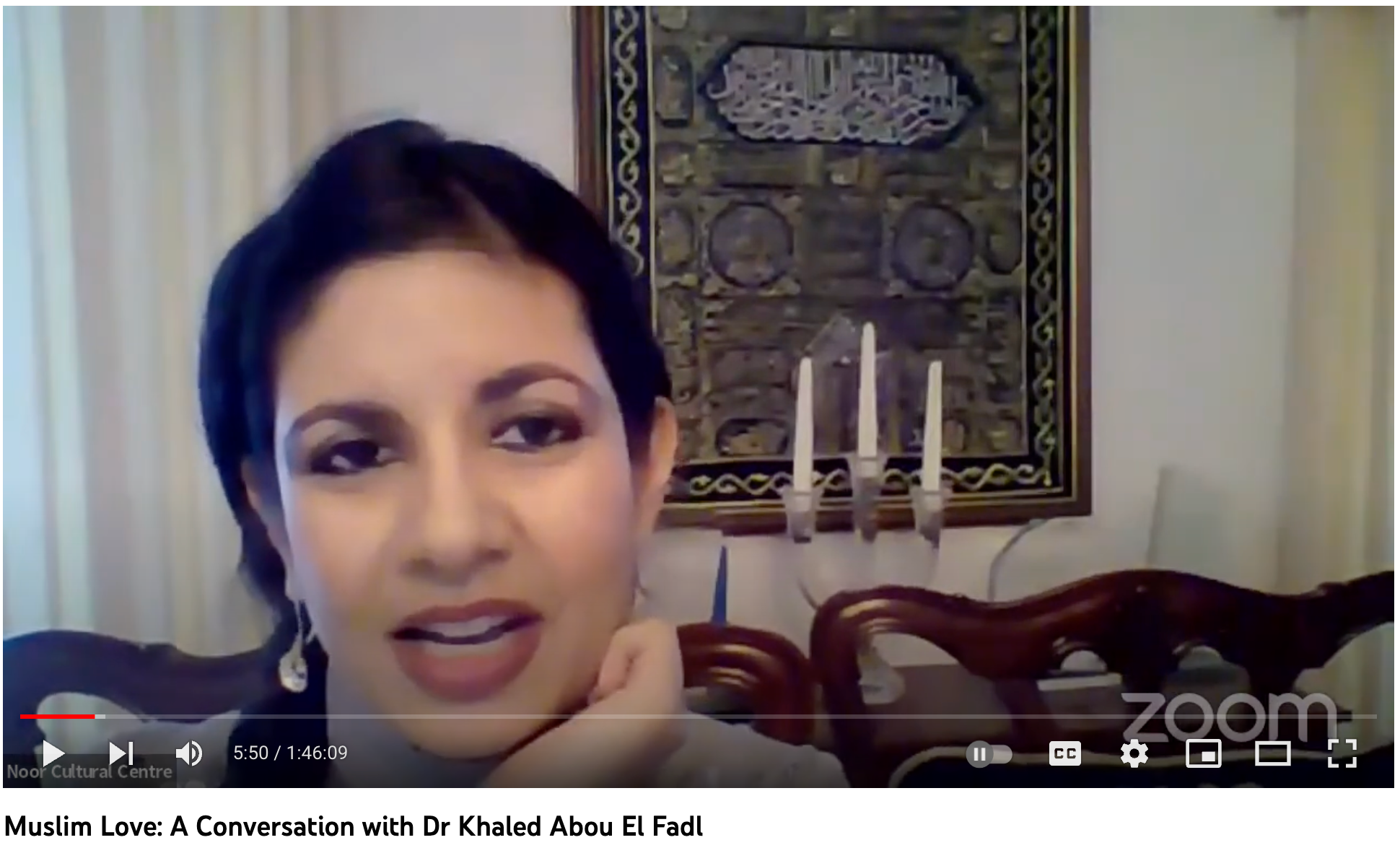Greetings of Peace (Al salamu 'alaykum)! I pray you are well!
This week, I wanted to share some great content!
A REVIEW OF PROJECT ILLUMINE: THE LIGHT OF THE QUR'AN
First, I would like to share a brilliant review of the Project Illumine Qur'anic commentaries written by someone who has been not only
journeying with us along the way, but someone who has invested an enormous amount of time and energy into helping others gain access to the gold within all of our content. If you have ever looked
in the YouTube description section of any of the Project Illumine halaqas, you will recognize that Stephen Connolly provides extensive timestamps for literally every video. In fact, he provides
these timestamps for the khutbahs (sermons) as well as the tafsir (Qur'anic commentaries). These timestamps are incredibly valuable, and Stephen did all of this on his own initiative - he did not
ask us; we did not ask him. He just did it, and what an amazing service that is its own legacy. May God bless you Stephen! Further, he just recently published his own commentary on the entire Project Illumine commentary, which I share
here:
Project Illumine — a Qur’an commentary for our time
Steve Connolly urges readers to look at the Qur’an with a fresh pair of eyes
by Steve Connolly
on 12 February 2023
in Issue 1820
Ironically, like science, people get out of the Qur’an what they project onto it. Avoiding confirmation bias requires the true enquirer to engage dispassionately, neutrally, and with dedication to discern the multi-layered meaning according to its own terms. Without suitable guidance however, even the most well-intentioned approach is likely to fall foul to misunderstandings, assumptions, idiomatic expressions, and decontextualisation, as well as naïvely simplistic literalism anticipating the spectre of legalism. Compounding these, the projection of egotistical biases and prejudices leads inevitably to cherry-picking, resulting in a message that is incondite, confusing, and antiquated — hideous darkness masquerading as enlightenment; the prize for the unwary.
The genius of the Qur’an partly lies in its ability to address people in every age post-revelation. To its pre-modern recipients, passages like (51:47) “We built the universe with great might, and We are certainly expanding it,” and (21:30) “...the heavens and the earth were one mass, and We tore them apart[...],” were clearly inexplicable, but to people familiar with Edwin Hubble’s work these now make perfect sense. Conversely, the original meaning, understood within its 7th century context, relating to much of its content, only resonates superficially, as our intimacy with its initial setting has diminished over time. The once familiar have become unfamiliar, aggravated by the accretion of dogmas, embellishments, and common mythologies — memes, if you like — aided by intellectual indolence, factionalism, and bouts of ideologically-driven campaigns to frustrate the message under the aegis of imperialism, both ‘Islamic’ and European.
Originating a fresh and innovative understanding of the Qur’an, the polymath Khaled Abou el Fadl (abul fadl) is close to completing its first direct-to-English commentary (tafsir) in 40 years via YouTube (Project Illumine, The Usuli Institute), with future publication in the offing. To demystify the text, Abou el Fadl employs the revelation’s axiomatic moral and ethical propriety to guide his own holistic, thematic, and contextual analysis rather than getting bogged down in the traditional, all-too-often navel gazing, line-by-line treatment. As might be expected of a scholar, there is the requisite literature review — extensively referencing the ~1,000-year-old tafsir genre — complemented with novel research where applicable. The result is transformational.
THERE IS NO LONGER ANY EXCUSE TO CONTINUE MISCITING THE QUR’AN
Take, for example, the allusion to judgement day in the chapter The Moon (54:1) “The hour has drawn near, the moon has split,” which precludes a literalist interpretation; exemplifying the Qur’an’s use of the past tense to reference the future; differentiating Divine from human time. The absence of reliable eye-witness testimony discounts this assertion in the narrative literature, indicating folkloric embellishment of a prophetic miracle, or the common and pervasive mythology that stoning to death is an Islamic prescription despite contradicting the Qur’an. Instead, because of the infeasibility of providing four eyewitnesses (24:4), the entirely notional penalty for adultery of 100 lashes, according to the chapter The Light (24:2), emphasises the egregiousness of the sin. As Abou el Fadl points out, however, the real focus here is on deterring slander (penalised with 80 lashes), the Prophet’s wife famously suffering this accusation. Literalistic and legalistic prescriptions aside, recourse to a fine would likely constitute a just, modern Islamic punishment for defamation, mirroring the remedy available under English law. As for the adulterers themselves, societal approbation and civil-law-like rather than criminal (hudud) proceedings would presumably suffice today.
What about the notorious wife-beating verse? Chapter The Women relates the tradition of husbands accusing their wives of sexual impropriety (nushuz) — based on the suspicion (real or otherwise) of their spouse taking a lover while he was away on extended travel — leading to her indefinite incarceration in the family home (or worse), thereby facilitating his remarriage. The passage concerned (4:34) is revolutionary because it abolished the husband’s culturally assumed prerogative to unjustly accuse and unilaterally punish his wife, instituting an alternative public judicial process with a range of options instead. Misconstruing this, patriarchally-inclined jurists subsequently invented, as the professor notes, the legalistic fiction of the husband lightly beating his disobedient wife with a toothbrush (miswak) to maintain familial order even though it apparently contradicts the next verse (4:35) where arbitration to resolve their differences is recommended. Abou el Fadl’s Project Illumine covers a plethora of such examples demonstrating the inappropriateness of much of the received Qur’an commentary to date. His work is an indication of the qualitatively superior textual understanding now available which relates to people living today rather than reflecting ye olde world of yesteryear. Consequently, there is no longer any excuse to continue misciting the Qur’an owing to suitable and accessible information.
Full article available here: https://felixonline.co.
CONVERSATION ABOUT LOVE IN THE ISLAMIC TRADITION!
As expected, last week's conversation about Love in the Islamic Tradition with Dr. Abou El Fadl and Azeezah Kanji of the Noor Cultural Centre
Toronto was phenomenal! If you missed it, you can find it here:
To entice you to listen, I will share this. Dr. Abou El Fadl began by sharing some beautiful quotes about love by Islamic scholars in our
tradition. Here are a couple:
Ahmad Al-Ghazali (Abu Hamid Al-Ghazali's brother and an important intellectual): "The function of the heart is being a lover. So long as there is no love, the heart has no function.
Therefore, it is certain that the heart has been created for love and for being a lover, and knows nothing else."
Shaykh Al-Ansari: "Ishq or total love is a burning fire and an ocean without shore. It is the spirit and the spirit of the spirit. It is story without end and pain without
remedy. The intellect is bewildered in its perception. The heart unable to grasp it. It makes the hidden apparent and the apparent hidden. It is the ease of the spirit and the outset of
illuminations. Although the spirit is the life of bodies, love is the life of the heart."
Then Dr. Abou El Fadl begins his talk:
...there are so many words in the Arabic language for love, and so many words that were utilized in the Islamic Tradition. So Muslim scholars tended to think of love as something that evolves and that grows and that matures. And the dynamic of maturity and growth and love is that love in its very core cannot be selfish. It cannot be a selfish thing. And they used to express it in terms of saying that love is annihilation. That when you truly love, what love does to you, is that it makes serving and giving sweet and profound.
You cannot love unless you know the beloved. If you do not know the object of your love, then what you will do is that you will project yourself onto the object of your love, and then end up
loving a construct that basically mirrors who you are. And so, love then ends up being a thoroughly egocentric dynamic, because you actually do not love. You do not really love, but you are
coveting. And there's an enormous difference between coveting and loving...the purpose is to achieve a union between the lover and the beloved, but that union in itself is not possible without
service. So in loving, you give and you serve. And again, they would express that in terms of annihilation, but what they meant by it is that, you would become selfless in giving. Your true
fulfillment of your spiritual ecstasy and your spiritual growth would be in this process of service..."
It was beautiful, inspiring and deeply profound. Enjoy!
FULL ALBUM RELEASE THIS WEDNESDAY, MARCH 1ST!!! WITNESS BY WIETSKE MERISON!
WITNESS by our dear friend, Wietske Merison will be available on Spotify, Apple Music or wherever you get your music THIS WEDNESDAY!!!
Finally you will be able to hear the full album!! CAN.NOT.WAIT!!!! Here again are the two songs we have already released:
PROJECT ILLUMINE II: THE LIGHT OF THE PROPHET MUHAMMAD: "Decolonizing the Sirah in the Age of Islamophobia: A Master Class"
Lastly, we have been planning for our next engagement as we are nearing the completion of the halaqas for PROJECT ILLUMINE: LIGHT OF THE QUR'AN, the first complete and original direct-to-English language Qur'anic commentary (tafsir) in over 40 years. To be clear, the Qur'anic commentary online classes will conclude, but then it will shift gears to become a full-time publishing project - it will be a full-force effort to transform the last two and a half years of halaqas into a legacy multi-volume book! Exciting!
What will we turn our attention to in our halaqa sessions? I hope and pray, as I have been alluding to for some time, that we will be able to achieve our aim of journeying deep into the traditions of the Prophet Muhammad (PBUH) with Dr. Abou El Fadl, experiencing his lifetime journey with the hadith literature (reports about the life of the Prophet), just as we did with the tafsir. In order to make that dream come true, as all non-profit organizations must, we need to raise the funds to be able to do this project right. The good news is that this project has now officially taken shape and become a potential reality - and the contours and details of it are truly phenomenal! The challenge before us now is to raise the funds to bring the baby to term! So to help in the "birthing" process, I am so excited to launch our LaunchGood page for PROJECT ILLUMINE II: LIGHT OF THE PROPHET MUHAMMAD! We have titled the engagement, "Decolonizing the Sirah in the Age of Islamophobia: A Master Class," to convey the absolute importance of this project - as Dr. Abou El Fadl has demonstrated time and again in the Qur'anic commentaries, Muslims do not own their own history nor their own narratives. What we know of our tradition is largely seen through a colonial filter. To get at the truth and beauty of our tradition, we must re-examine, relearn and re-engage the hadith literature anew. Dr. Abou El Fadl dedicated his life to engaging this tradition as only a scholar could, working to satisfy his own questions. Now we have the opportunity to receive this precious understanding of the life of the Prophet. How can we allow this opportunity to pass?
Dr. Abou El Fadl was focused on the intimate history of a great man - who the Prophet was as a person, why he was endearing to those around him, and how he lived, loved, prayed, and worshipped. This is not a review of the institutional history of the Prophet's life, or a chronology of the battles he fought or the treaties he signed. Similar to a previous 8-session halaqa he did entitled, "Humanistic Approaches to the Life of the Prophet," back in the late 1990s/2000s, it is an unprecedented, humanistic “first-hand meeting” with the Prophet based on Dr. Abou El Fadl’s extensive review of original Arabic texts. However, this master class engagement will include the 20+ years of additional research he has done since then!
Consider this tantalizing quote by Dr. Abou El Fadl:
“In researching the entire corpus of hadith traditions, it becomes apparent that so many of the reports about the Prophet Muhammad were built upon or shrouded by medieval mythologies. Yet, in the midst of this immense accumulation, there are reports that have all the earmarks of telling us a testimony - someone actually testifies to something real. And when you take all these things that testify to what is real, what emerges is a picture of who this man was and why what he did was so great. People think you can just open a book of hadith and just read it. You can’t do that. You are dealing with texts that were written hundreds of years ago by people whose outlook and understanding of their reality was very different. You have to take all of that into account when getting to the heart of who the Prophet was as a human being and why those around him loved him so dearly, which is what I was seeking to understand…”
Do you want to see this knowledge come to light? Help us! We also have the blessing of a most generous donor who will match all donations dollar for dollar up to $50K! God bless and elevate their family! Here it is:

PROJECT ILLUMINE II: THE LIGHT OF THE PROPHET MUHAMMAD
"Decolonizing the Sirah in the Age of Islamophobia: A Master Class"
Matching Gift Campaign up to $50K!
www.launchgood.com/
DETAILS:
We need to raise $185,000 by June 30, 2023 to secure one semester of weekly virtual halaqas that will run from January to June 2024. If we
can raise another $185,000 by December 31, 2023, then we can secure a second semester of weekly virtual halaqas that will run from July to December 2024. This will be a subscription-only halaqa,
with subscriptions for each semester costing $600 for the semester ($100 per month)/$500 if you subscribe BEFORE June 30, 2023. More details will be available on our www.usuli.org website next week, God willing (insha'Allah)!
PROJECT ILLUMINE TONIGHT: Surah 98: Al Bayyinah and Surah 99: Al Zalzalah!
These short surahs are so life-transforming and I cannot wait!! Hope to connect with you online soon insha'Allah (God willing)! May God comfort, console, uplift, and empower you, and fill
your heart with LOVE!!
Grace



 .
.